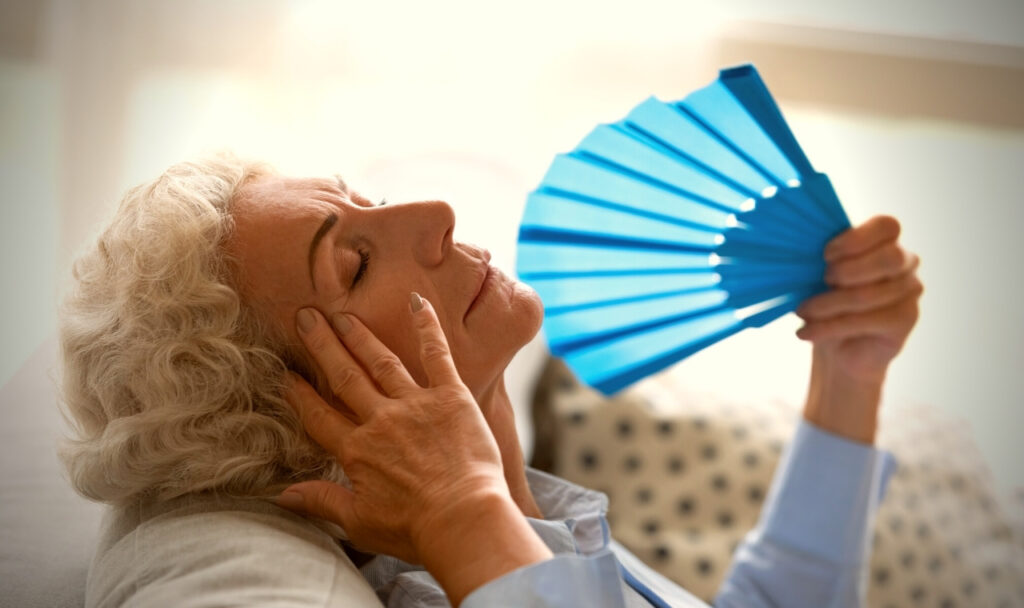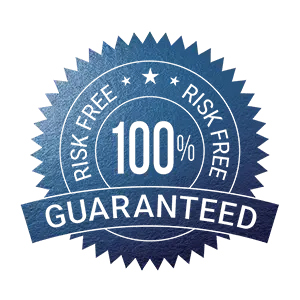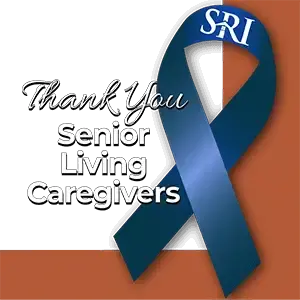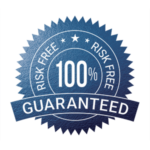Posted in: Health
Note: This article was written by Becky Light and originally appeared on SeniorsMatter.com.
It’s hot out there. Headlines across the country scream the dangers of sizzling conditions, extreme heat waves, and record-breaking temperatures. Excessive heat is unsafe for everyone, and older adults are especially vulnerable to extreme temperature changes. Overheating in the elderly is very common in the summer months.
Both lifestyle and health-related factors increase a senior’s risk of developing heat-related complications. They are more likely to have chronic medical conditions or take prescription medications that influence a body’s ability to regulate temperature.
Seniors are more likely to overdress, have salt-restricted diets, limit drinking and live in particularly hot climates such as Florida. That is why it is important to keep an eye on our senior family and friends during the hot summer season.
Here is a guide to understanding hyperthermia in older adults, and what you can do to help or even prevent heat-related illness.
Heat Rash
Heat rash is one of the first signs of overheating in the elderly. This is caused by excessive sweating and looks like a small cluster of red bumps or small blisters. Heat rash may appear on the neck, chest, groin, under the arms or in creases of the knee or elbow.
To treat heat rash, move to a cooler and less humid area. Keep the skin dry and use powder to decrease discomfort. Do not use any ointment or cream. Heat rash will usually go away on its own.
Heat Cramps
Heat cramps will occur when excessive sweating lowers your body’s salt and moisture levels, leading muscles to cramp. Symptoms include painful cramps or spasms in the abdomen, arms and/or legs. Heat cramps occur most often in people who complete strenuous activity in the heat. If you experience heat cramps, stop the activity and get out of the heat.
Drink plenty of water or sports drink and have a snack. Seek medical help for cramping that lasts longer an hour or if you have a history of heart problems.
Heat Syncope
Heat syncope is when you experience sudden dizziness and feel faint following time spent in extreme heat. Dehydration is a factor that contributes to heat syncope.
Symptoms include light-headedness, especially during prolonged standing or when you rise from a sitting to standing position, dizziness and disorientation. Fainting, even after a short duration, is indicative of more serious overheating. Heat syncope can be treated by sitting or lying down in a cool place and rehydrating with water, clear juice or sports drink.
Serious forms of hyperthermia include heat exhaustion and heat stroke.
Heat Exhaustion
Heat exhaustion develops after prolonged exposure to high temperatures and inadequate hydration. It is your body telling you it can no longer cool itself. Heat exhaustion can quickly escalate to heat stroke. Warning signs of heat exhaustion include:
- Excessive sweating
- Pale skin that may be moist and cool
- Muscle cramping, especially in the lower extremities
- Weakness and fatigue
- Headache
- Nausea
- Dizziness
- Pulse that is fast and weak
- Breathing that is fast and shallow
If you suspect heat exhaustion, move to a cool place, loosen the person’s clothing, and put cool wet clothes on their body; especially on the head, chest and under arms. It may help to take a cool bath. Sipping water is also a good idea. Seek medical attention if the person begins to vomit or if symptoms worsen or last longer than one hour.
Heat Stroke
Heat stroke is the most serious form of overheating and is a medical emergency. Signs of heatstroke include:
- Body temperature of 103º or higher
- Skin may be hot, red, dry or damp
- Worsening headache
- Pulse that is fast and strong
- Altered mental status and confusion
- Nausea with vomiting
- Loss of consciousness
If you suspect heat stroke, call 911 immediately. Move to a cooler place and help lower body temperature by using cool wet cloths. Do not give the person anything to drink.
Overheating Prevention
Prevention of overheating in senior citizens is best.
First, stay hydrated during periods of heat. Drink plenty of water and avoid alcohol and caffeinated beverages that contribute to dehydration.
Next, you might just want to stay inside with air conditioning. While some seniors think that higher settings on the thermostat might save money, a setting no higher than 78º is a good balance for energy savings and cool comfort. If you must go out, go earlier in the morning before the temperature spikes. Also, dress in light loose-fitting clothing that allows air circulation.
Visit your senior family, friends and neighbors to make sure they are inside with working air conditioning. Close windows and blinds to block the sun. Check the fridge for enough non-alcoholic beverages, and encourage them to increase fluid intake. Discourage heavy activity during hot weather, and make sure your loved one has a way to check the weather on television, internet, or radio.
Older adults are more likely to suffer from heat-related illness. Know the signs of overheating and what to do in case the heat has an adverse effect on an elderly person. Awareness and precaution will help you and the seniors in your life enjoy all that summer has to offer.
Center for Disease Control. Heat Related Illness. Available at https://www.cdc.gov/niosh/topics/heatstress/heatrelillness.html. Accessed June 17, 2021.
National Institute on Aging. Hot Weather Safety for Older Adults. Available at https://www.nia.nih.gov/health/hot-weather-safety-older-adults. Accessed June 17, 2021.






for
special events
and offers